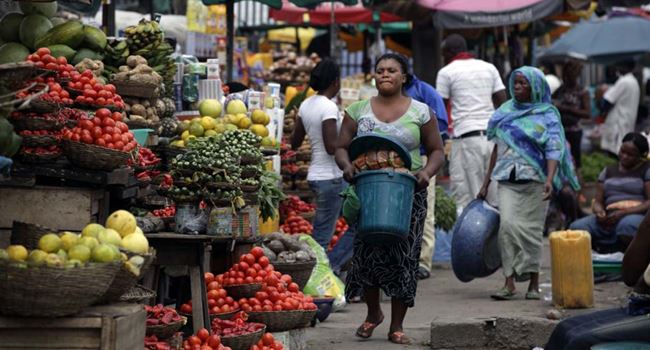Business
68% Nigerian households experienced food insecurity in August –NBS report

Sixty-eight per cent of Nigeria’s household population witnessed different degrees of food insecurity ranging from moderate to severe in the month of August, data from the National Bureau of Statistics (NBS) showed on Monday.
“The food security situation in Nigeria remains precarious, even as the lockdown restrictions continue to be loosened.
“The share of households experiencing moderate or severe food insecurity remained high at 68 per cent in August 2020.
“Experience of both moderate and severe food insecurity are more prevalent than that reported in July/August 2018 during the first visit of the GHS-Panel,” the NBS said in its Covid-19 Impact Monitoring August 2020 report.
Nigeria is currently witnessing one of its most acute food crises in years, food inflation having hit its 29-month high of 16% in August and paddy farmers in some parts of the north taking stock of losses from seeing flood submerge their plantations of rice, one of the major imports the country has barred in an effort to develop local sufficiency.
Read also: Nigerian smallholder farmers think out-of-box as food crisis heightens
President Muhammadu last month put the stopper on foreign exchange aimed at facilitating all food imports into the country in furtherance of his sometimes extreme interventionist policies in food production, a policy shift that could push the headline inflation figure for September, due this month, higher.
Most of the Nigerians polled in the survey, whose details were published in the NBS report, disclosed they had greater access to preventative care as a result of a gradual relaxation of travel restrictions in Nigeria in the aftermath of the coronavirus outbreak.
Nearly 95 per cent of households with children of school age said they intended to return them to schools once they reopened.
“About one in four households were indebted prior to the pandemic, while nearly a third have taken out new loans since the onset of the pandemic,” NBS said in the report.
Join the conversation
Support Ripples Nigeria, hold up solutions journalism
Balanced, fearless journalism driven by data comes at huge financial costs.
As a media platform, we hold leadership accountable and will not trade the right to press freedom and free speech for a piece of cake.
If you like what we do, and are ready to uphold solutions journalism, kindly donate to the Ripples Nigeria cause.
Your support would help to ensure that citizens and institutions continue to have free access to credible and reliable information for societal development.






















